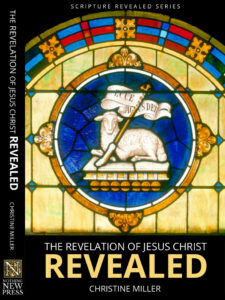Read Revelation 9 at Bible Gateway.
Revelation 9, The fifth trumpet: The army of locusts
Revelation 9, The duration of the fifth trumpet
Revelation 9, The fifth trumpet of torment but not death
Revelation 9, The conclusion of the fifth trumpet
Then the sixth angel sounded: And I heard a voice from the four horns of the golden altar which is before God, saying to the sixth angel who had the trumpet, “Release the four angels who are bound at the great river Euphrates.” So the four angels, who had been prepared for the hour and day and month and year, were released to kill a third of mankind. Now the number of the army of the horsemen was two hundred million; I heard the number of them. And thus I saw the horses in the vision: those who sat on them had breastplates of fiery red, hyacinth blue, and sulfur yellow; and the heads of the horses were like the heads of lions; and out of their mouths came fire, smoke, and brimstone. By these three plagues a third of mankind was killed—by the fire and the smoke and the brimstone which came out of their mouths. For their power is in their mouth and in their tails; for their tails are like serpents, having heads; and with them they do harm. But the rest of mankind, who were not killed by these plagues, did not repent of the works of their hands, that they should not worship demons, and idols of gold, silver, brass, stone, and wood, which can neither see nor hear nor walk. And they did not repent of their murders or their sorceries or their sexual immorality or their thefts. Rev 9:13-21
The sixth trumpet involves a judgment by four angels, which originates at the Euphrates River; which would occur over a certain time period (1 hour + 1 day + 1 month + 1 year), and which would afflict the final third of the Roman Empire, if the traditional interpretation is correct, which is the Byzantine Empire. That the sixth trumpet judgment involves an army of horsemen is made plain by vs. 16. Then a description of the army is given, along with the unusual means by which they accomplish death.
The sixth trumpet judgment ends with the notation that those in the (former) Roman Empire who were left (the other two- thirds who had already been judged?) did not repent of a philosophy of works, of the worship of demons as idols made as actual statues, of murders, of sorcery, of immorality, or of theft.
We already know that we are looking for an assault against the Byzantine Empire which begins sometime after 762, the date that marks the end of the fifth trumpet. The Turks are the only power to assault the Byzantine Empire following 762. They actually bring about its fall in 1453. But do the details of history, the times, and the descriptions fit? Concerning the history of the Turks, we learn that there were four great Turkish states which led up to the conquering nation which came across the Euphrates River from the east. What a coincidence.
The Turks arose in Central Asia, and came to prominence after the decline of the Huns. The first state was of the Gokturks, which became a power beginning in 546. Then there was a civil war, and the Gokturks split into two states, some or both of which were dominated by the Chinese for a time. Then a second Gokturk state arose beginning in 661. Another family of Turks, the Uygur Turks then came to power, and established a third Turkish state beginning in 741. The fourth Turkish state was under the Seljuk Turks, beginning in the 11th century (the 1000s).
What happened between the third and fourth states is interesting, because it brought the Turks right to the Euphrates River. In the 8th century, the family of Turks which were to become the Seljuks migrated into the area between the Caspian and Aral seas. They began trading with the Abbasid Arabs, the Islamic dynasty centered in Baghdad, which had ended the fifth trumpet. It was from the Abbasids that the Turks learned Islam, and they renounced the Shaminist religion of their forefathers and adopted Islam with fervency. The newly Islamic Turks in 1037 invaded Persia, and the Seljuks were established as the leading dynasty over the Turks. In 1055, the Seljuk sultan Togrul delivered the Caliph of Baghdad from a series of revolts, and became, in fact, the real power of the Baghdad Caliphate, right on the Euphrates River.
Thus we see four angels, which correspond to the restraining and releasing spiritual authority of the four Turkish states, which had been prepared for the time, but were kept bound beyond the Euphrates until they should be released against the remaining third of the Roman Empire.
Revelation 9, The sixth trumpet: Crossing the euphrates
Revelation 9, The duration of the sixth trumpet
Revelation 9, The sixth trumpet army
Revelation 9, The trumpets did not inspire repentance
Return to Revelation Index of Studies
Christine’s book The Revelation of Jesus Christ Revealed, based on these studies but greatly expanded, is now available from Nothing New Press. You may also be interested in reading the Book Extras and joining in on the Discussion.
As well, Revelation in Chiastic Structure is also available.

















Leave a Reply